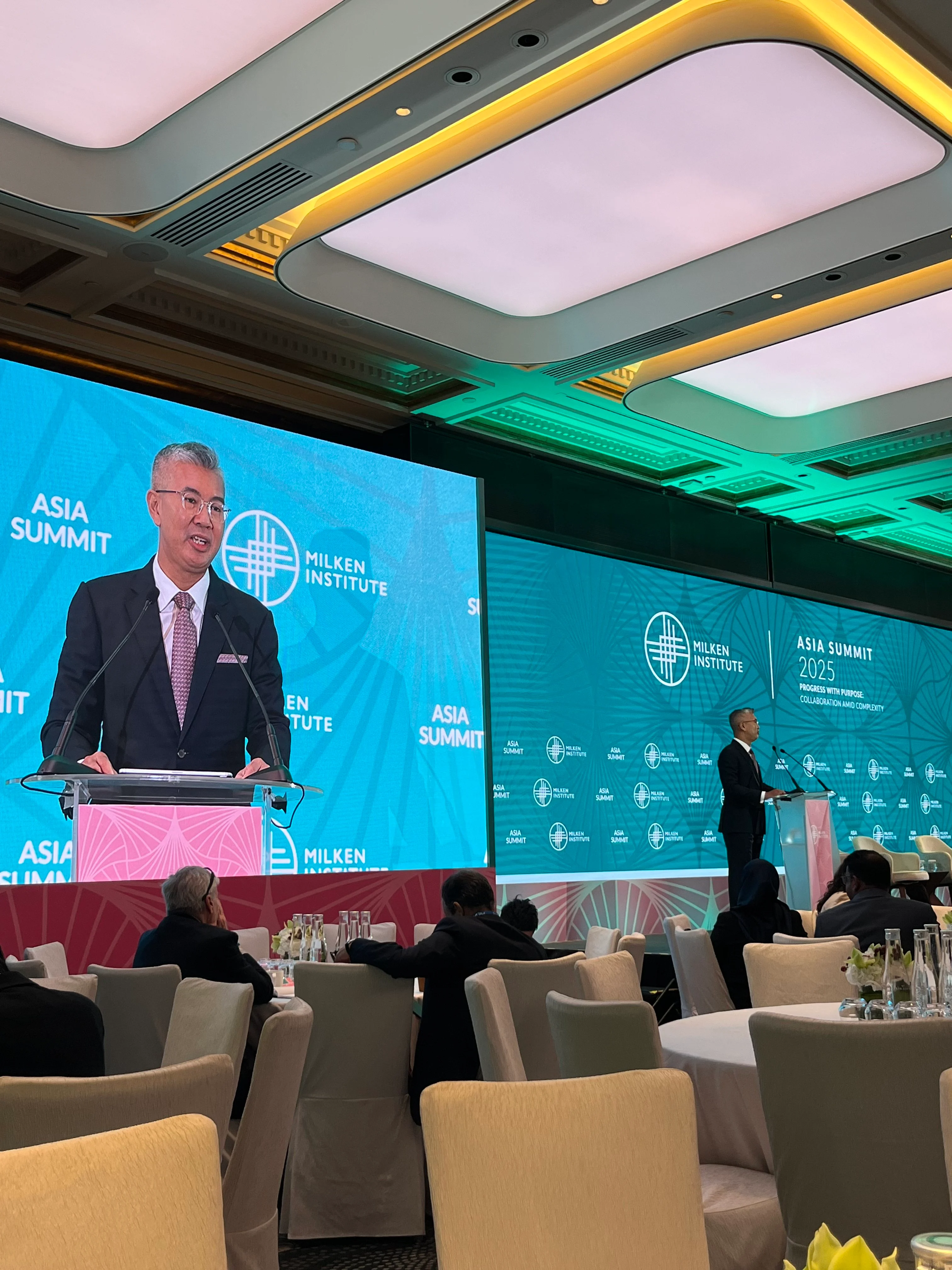By Jean Iau
Copyright scmp

In an era marked by geopolitical rifts and economic volatility, Asean shines as a beacon of stability and potential, according to Malaysia’s trade minister.
Tengku Zafrul Aziz offered a robust defence of the 10-nation bloc’s consensus-driven approach at the Milken Institute Asia Summit in Singapore on Thursday, insisting that its slow deliberations were a strength, not a weakness.
Addressing an audience of business leaders, government officials and investors, Zafrul argued that the Association of Southeast Asian Nations was one of the world’s few effective middle-power platforms, offering a rare space where representatives of the United States, China, India, the Middle East and Europe can engage on equal terms.
As the current Asean chair, Malaysia made no apologies for its fierce neutrality, Zafrul said, stressing his country’s determination to keep the region open to all and be “master of its own house”. This was the surest route to peace and prosperity, he contended.
Once Asean decides, it is the voice of 10, not the will of one
Malaysian trade minister Tengku Zafrul Aziz
“Where others retreat, Asean responds, and when others collide, Asean connects, and when others fall, Asean streams forward,” Zafrul told the summit. “But critics say Asean sometimes moves too slowly. Sure, consensus-building is time-consuming, but once Asean decides, it is the voice of 10, not the will of one.”
This was why the bloc had endured for over the decades, he said, retaining both its relevance and its respect even in a fractured world.
The numbers speak for themselves, according to Zafrul. Regional growth is projected at 4.2 per cent this year, while in 2024, trade in goods surged nearly 9 per cent to US$3.8 trillion, services trade expanded by 12 per cent and growth in foreign direct investment outpaced the global average.
“These figures are not abstractions, but represent real factories rising in Penang and Bangkok, digital start-ups scaling in Singapore, Jakarta, Manila and solar firms powering homes in Vietnam,” he said.
“They tell a story of resilience and opportunity, born of decades of connection, centrality and commitment.”
Describing Malaysia as the best entry point into Asean, Zafrul cited its industrial reforms to boost innovation and economic complexity, particularly in advanced semiconductor packaging.
He said the government’s national strategies were being reinforced by cross-border initiatives such as the Johor-Singapore Special Economic Zone, which he called a “test bed of how Asean can integrate supply chains, strengthen resilience and create high value opportunities across borders”.
Cold showers
But underneath the economic dynamism, challenges remain – as seen in the recent youth-led protests that swept Indonesia, fuelled by frustration over government policies, corruption and economic hardship.
At a panel on Thursday about Asia’s investment outlook, the chief investment officer of Indonesia’s sovereign wealth fund Danantara, Pandu Sjahrir, was asked to address the unrest that came at a time when economic indicators were pointing upwards.
Sjahrir acknowledged the challenge, saying Indonesia was in the midst of a cultural shift, with President Prabowo Subianto intent on giving a “cold shower” to perceptions of endemic corruption.
“What we’re trying to do is change the cultural perception domestically first, so that when we are here in Milken and in future Milkens, you look at Indonesia not with a big trust deficit,” he said, expressing hope for a “trust dividend” in the next five years.
Indonesia’s young people were the country’s future leaders and could not be ignored, Sjahrir said. “We’re all learning to listen and we communicate, we cannot be defensive. We have to learn, listen and then see, what are the best things we can do and then work that out.”



